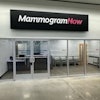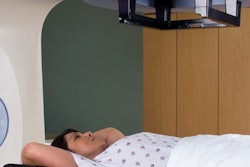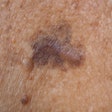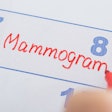
Most older breast cancer survivors still undergo annual mammograms with enthusiasm, even though the exams may be of little value, a study published July 16 in the Journal of Geriatric Oncology found.
Researchers led by Dr. Dhauna Karam from the Mayo Clinic Health System at Austin and Albert Lea in Minnesota wrote that lack of awareness among survivors and clinicians may be to blame, noting the limited benefits of surveillance mammography over the age of 74.
Breast cancer mortality rates have decreased in recent decades, with annual screening and improved access contributing to this trend. This places more focus on improving the quality of life for breast cancer survivors, which includes surveillance mammography. The American Cancer Society (ACS) and the American Society of Clinical Oncology (ASCO) recommend annual surveillance mammography in survivors with residual breast tissue and no known metastatic cancer.
However, these guidelines aren't cut and dry for older women. Guidelines from other organizations suggest that if life expectancy is low, such as less than five years, surveillance mammography isn't recommended. Conversely, if life expectancy is higher and patient goals and general health are considered, mammography may be recommended.
Previous studies suggest that many women over age 80 still undergo annual mammography, which may be unnecessary considering life expectancy. While surveillance mammography can help detect new or recurrent breast cancers, they can also cause emotional distress, anxiety, and discomfort. For elderly women, local cancer recurrences may not impact survival.
Karam and colleagues wanted to explore reported patterns and perceptions of harms related to surveillance mammography in older breast cancer survivors who did not have metastatic disease.
The team surveyed 734 women with a median age of 82 and a median time since cancer diagnosis of 12 years. The women had a history of stage I-III breast cancer, did not undergo bilateral mastectomy, and were diagnosed with cancer at least three years prior to entering the study. In all, 702 women responded to a question of whether they had received surveillance mammography in the last three years.
The researchers found that 93% of the women reported having had at least one mammogram since their initial breast cancer surgery.
| Percentage of women who reported undergoing surveillance mammography over the last 3 years | |
| Total | 79% |
| Women age 80 and older | 76% |
| Women age 85 and older | 64% |
The researchers acknowledged that surveillance mammography remained popular among the women they surveyed. Just 3% of women who answered questions about the adverse effects of mammography reported constant depression and anxiety within one week prior to or after receiving their mammogram. Most of the respondents (78%) also reported having peace of mind with annual surveillance mammograms.
"They largely expressed strongly positive opinions about surveillance mammography and voiced a preference to continue mammography on an annual schedule," Karam and colleagues wrote.
But the authors believe that these opinions run contrary to evidence that annual surveillance mammography is not beneficial for women over the age of 74. They recommended the development of tailored breast cancer risk information and decision aids to convey this information to older women.
"Tailored interventions that convey individualized recurrence risks and potential harms of mammography should be studied in older breast cancer survivors," they added.



















